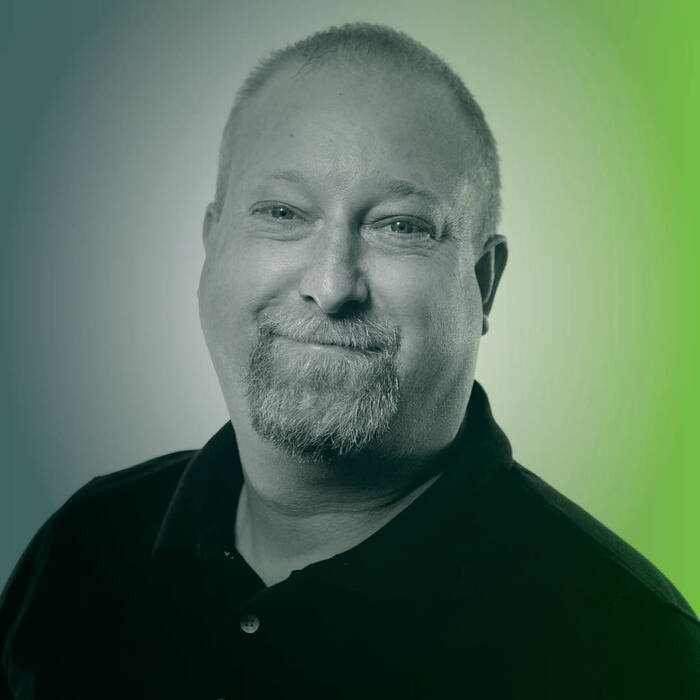
What is your position with Ellipsis?
I’m the program director of residential services at Ellipsis’ north campus.
How long have you worked here?
I’ve worked at Ellipsis for nearly 27 years.
Have you had any other roles/jobs during your tenure with Ellipsis?
I started out as a youth care worker, but the majority of my time at Ellipsis has been spent in a leadership role.
What drew you to work at Ellipsis?
This was my first job out of college. At the time, I just knew I wanted to work with kids because of my upbringing and experiences in working with and around young people.
Can you recall a moment (during your career with Ellipsis) when you felt like you were in exactly the right place, doing exactly what you should be doing? What was that like?
I honestly have felt that way during the majority of my time with Youth Homes of Mid-America and now with Ellipsis. Our agency is like family to me. Being able to help each other out while having the same goals in mind — to better serve children and families — is exactly what I want to be doing. As my role has changed, my direct contact with our clients has reduced, but I am able to help our staff see Ellipsis’ vision and understand the impact they can have on our clients’ lives.
What are some of the more challenging aspects of this job?
One of the challenges is the system itself not moving as fast as we would like to best serve our clients. This can delay kids’ progression, and at times, it can cause them to regress. They may be ready for the next step in their treatment, but something else in the process may not be in place yet, which then can cause the client to get frustrated and want to quit working toward their goals.
Additionally, treatment options are becoming fewer and further between, which can cause some clients to be placed in our facility when they would be best served in another environment. We have always prided ourselves in thinking outside the box, and we do rise to the challenges we face to best serve these clients. In that aspect, some of these challenges have become some of our biggest successes.
What are some of the rewarding aspects of the job?
My favorite moments are when former clients stop by or call to tell you how they have been doing, whether they’re doing great or still getting their feet under them. This reinforces to me the impact that we had on their lives and reminds me of why I do what I do.
Another is that we have a tradition of having the kids who successfully leave our residential program ring a large bell. Before they ring the bell, we gather as many staff and kids as possible to surround the youth. A staff member will summarize the client’s stay and obstacles they overcame to reach their goals. We then have the client speak to the staff and kids. This is the point when some clients will really show the true progress they have made by acknowledging the difficulties they faced and what they did to better themselves. Having them thank staff and give other kids advice and encouragement is very impactful.
Why is it important to have residential programs in communities and qualified people working in them?
There is a great need for residential programs in the community as there seems to be more and more difficulties young people and their families are facing today. These programs offer an opportunity to provide skills and services to both the child and the family to hopefully improve their ability to face difficulties more independently and successfully. Increasing the number of qualified people to serve these clients will remain a need for years to come.
What is a misconception people may have about mental health treatment? How do you dispel that?
Some believe that poor mental health only affects some population segments. We, of course, know that all people can be affected by trauma and situations that can greatly impact their lives and functioning. Individuals’ ability or knowledge on how to access needed services continues to improve as mental health is discussed more openly in the media, so hopefully this positive conversation continues. There should be no shame or guilt in trying to better yourself and get the help you or your family needs to function in a more healthy and productive manner.
If there’s anything else you’d like to add about your role, please feel free to do so!
I’m proud of my team!
